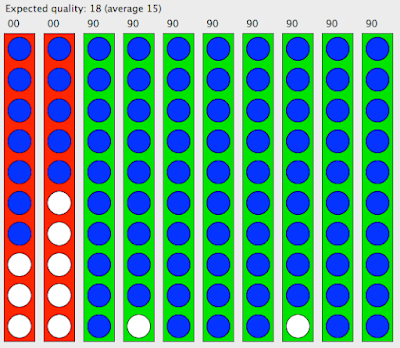#IT, #ITManagement, #ITManagementTheory, #ITHiring, This article explains that in some cases getting hired by a great company is not a guarantee of a great team or a manager, and sometimes actually the opposite. Imagine that you've got hired by a great company, at least so “The Best Employee” polls say. Great, is not it? Don't jump to conclusions yet. Let's look how it works inside. First let's create a model. Assume the company has 10 teams with 10 positions in each. Also, assume that all teams are filled 90%, and so each team has one headcount. By the way, this model is implemented in Java and available on the GitHub (it was actually first done around 2010, and I re-implemented it in 2023). Now, remember? The company is great! Which means most of the teams are good. But the cannot be all good, so let's assume a couple of them is bad. Let's say, 90 (green) is good, and 0 (red) is bad. What will we have after N iterations? Here it is: You see, two things are h...
.webp)



.jpeg)